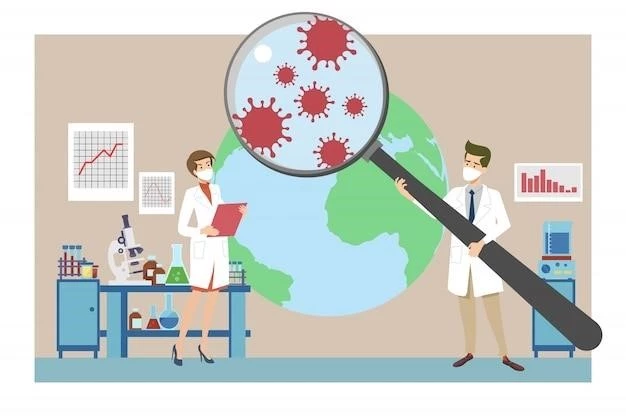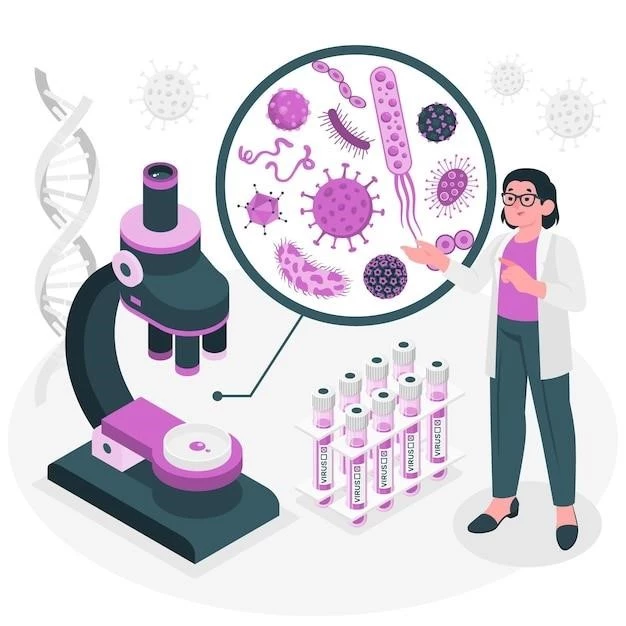Understanding Parasitophobia
Understanding Parasitophobia⁚ Parasitophobia is the fear of parasites, particularly arthropods on or in the skin. Individuals experiencing this fear may believe they are infested with parasites, leading to distress and anxiety.
Definition of Parasitophobia
Definition⁚ Parasitophobia, also known as entomophobia or acarophobia, is an intense and irrational fear of parasites or bugs. This fear can lead individuals to believe they are infested with parasites, especially arthropods on or in the skin, causing significant distress and anxiety.
Types of Parasitophobia
Parasitophobia encompasses various specific fears related to parasites, such as teniophobia focusing on tapeworms and acarophobia targeting ticks. These specific phobias can lead to significant distress and anxiety in individuals.
Teniophobia and Acarophobia
Teniophobia refers to the fear specifically focused on tapeworms, while acarophobia is the fear targeted at ticks. These phobias fall under the broader category of parasitophobia, manifesting in distress and anxiety related to these specific types of parasites.
Delusional Parasitosis
Delusional Parasitosis, also known as delusional infestation, is a rare psychiatric disorder where individuals have a fixed, false belief of being infested with parasites, insects, or bugs despite medical evidence suggesting otherwise. This condition often leads to tactile hallucinations and severe distress.
Symptoms and Characteristics
Individuals with delusional parasitosis may exhibit symptoms such as a fixed false belief of being infested with parasites, insects, or bugs despite lack of evidence. These individuals often experience tactile hallucinations, known as formication, where they feel sensations resembling insects crawling on or under their skin. The condition can lead to severe distress and significantly impact daily functioning.
Ekbom Syndrome
Ekbom Syndrome, also known as delusional parasitosis, is a psychiatric disorder where individuals have a fixed false belief of being infested with parasites, insects, or bugs despite medical evidence suggesting otherwise. This condition often leads to tactile hallucinations and severe distress.
Overview and Relationship to Parasitophobia
Ekbom Syndrome, also known as delusional parasitosis, shares similarities with parasitophobia in the intense fear of infestation despite lacking evidence. Individuals with Ekbom Syndrome experience tactile hallucinations and distress due to their unwavering false beliefs of being infested with parasites or bugs.

Diagnosis of Parasitophobia
Diagnosing Parasitophobia involves assessing an individual’s intense fear of parasites, particularly arthropods on or in the skin. Clinicians may evaluate the patient’s beliefs and behaviors related to infestation to differentiate Parasitophobia from other psychological conditions.
Differentiating from Other Conditions
The diagnosis of Parasitophobia involves differentiating it from conditions like delusional parasitosis and Ekbom Syndrome, where individuals have a false belief of infestation. Clinicians use psychological evaluations and medical evidence to distinguish Parasitophobia, which is characterized by an intense fear of parasites, particularly arthropods on or in the skin, from other similar disorders.
Treatment for Parasitophobia typically involves a combination of therapy, such as cognitive-behavioral therapy (CBT) and exposure therapy, along with medication if necessary. Therapists help individuals challenge and modify their distorted beliefs about parasites to reduce anxiety and fear. Medications like antidepressants or antipsychotics may be prescribed to manage symptoms.
Treatment Approaches
Treatment for Parasitophobia typically involves a combination of therapy, such as cognitive-behavioral therapy (CBT) and exposure therapy, along with medication if necessary. Therapists help individuals challenge and modify their distorted beliefs about parasites to reduce anxiety and fear. Medications like antidepressants or antipsychotics may be prescribed to manage symptoms.
Impact of Parasitophobia
Parasitophobia, the fear of parasites, can have significant psychological and physiological effects. Individuals experiencing Parasitophobia may face anxiety, distress, and avoidance behaviors due to their intense fear of parasites, particularly those on or in the skin.
Psychological and Physiological Effects
Parasitophobia can lead to significant psychological distress, including anxiety, fear, and avoidance behaviors. Physiologically, individuals may experience symptoms like skin picking, insomnia, and stress-related physical ailments due to the intense fear of parasites, especially arthropods on or in the skin.
Demographics of Parasitophobia
Parasitophobia is often observed in middle-aged women, presenting a challenge for dermatologists due to patients’ reluctance towards psychiatric consultations and medication. This demographic group may experience difficulties in seeking appropriate treatment for their fear of parasites.
Prevalence in Middle-Aged Women
Parasitophobia is frequently observed in middle-aged women, posing challenges for dermatologists as patients may resist psychiatric consultations and medication. Middle-aged women experiencing parasitophobia may struggle to seek appropriate treatment, impacting their overall well-being and quality of life.
Delusions of Parasitosis
Delusions of Parasitosis, also known as delusional infestation, are psychiatric disorders where individuals have a fixed false belief of being infested with parasites or bugs despite medical evidence suggesting otherwise. This condition can lead to distress and challenges in seeking appropriate treatment.
Causes and Manifestations
Delusions of parasitosis, also known as delusional infestation, can be caused by various factors, including underlying psychiatric conditions and brain imbalances. Individuals with this condition exhibit fixed false beliefs of being infested with various organisms like lice, fleas, mites, worms, or other creatures, leading to significant distress and functional impairment in daily life.

Delusional Parasitosis Subtypes
Delusional parasitosis subtypes include Morgellons Disease, a condition where individuals believe they have sores containing harmful fibers. This subtype is classified under the broader category of delusional infestation disorders.
Morgellons Disease
Morgellons Disease is a subset of delusional parasitosis where individuals believe they have sores containing harmful fibers. This condition is recognized within the spectrum of psychiatric disorders related to delusional infestation, causing distress and challenges in seeking appropriate treatment.
Relationship to Other Disorders
Parasitophobia, a fear of parasites, shares similarities with related disorders like delusional parasitosis and Morgellons Disease. These disorders are characterized by false beliefs of infestation and can impact an individual’s mental well-being and daily functioning.
Connections to Delusional Jealousy and Personality Disorders
There are connections between parasitophobia and other disorders like delusional jealousy and certain personality disorders, such as paranoid and borderline personality disorders. Brain injuries, diseases, and conditions like Huntington’s or Parkinson’s disease can also lead to delusional behavior, highlighting the complexities of mental health conditions.
Research and Resources
Current research and resources focus on understanding and approaching delusional infestation, including the classification of parasitophobia within the spectrum of psychiatric disorders. By exploring therapeutic interventions and advancing knowledge, professionals aim to provide effective support for individuals experiencing delusional parasitosis.
Current Understanding and Approach to Delusional Infestation
Current understanding of delusional infestation, including parasitophobia, focuses on recognizing and treating this rare psychiatric disorder. The approach involves differentiating between real infestations and delusional beliefs, offering cognitive-behavioral therapy, antipsychotic medications, and support services to help individuals manage their symptoms and improve their quality of life.
